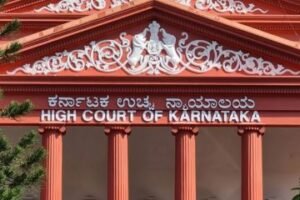‘When Will A High & Mighty State Owned Insurance Company Realise Its Social Conscience?’: SC Criticizes Challenge Against Compensation For Worker’s Death
Case: Shantilata Sethy and Another v. M/s Divisional Manager, The New India India Assurance Company Limited and Anr.
Coram: Justices D. Y. Chandrachud and A. S. Bopanna
Case No.: Civil Appeal Nos 7657-7658 of 2021
Court Observation: “When will a high and mighty state-owned insurance company realize its social conscience? Our conscience has been deeply disturbed by the manner in which a farmer and his spouse have been left to the mercies of legal procedure. Should the insurer have dragged the parents to the High Court over the award of Rs 2.64 lakhs for the death of their wage-earning son? It is time that there is a fundamental rethink on this. Families of the victims of motor accidents cannot realize rights under the law so long as litigation continues to be a stratagem and source of harassment and torture”
“There was absolutely no basis for the High Court to reduce the award on the ground that there was no material to establish the salary that the deceased was earning at the time of the accident. There was no ground to proceed on the basis of the minimum wage, particularly when there was nothing untoward or exaggerated in the claim for compensation based on the salary which was earned by the deceased”
“The second respondent has in his written statement and affidavit, stated that the deceased helper was receiving a salary of Rs 2400/month. This statement has not been discredited. The deceased was an informal worker, who was working as a helper in a transport business under the second respondent, earning a meagre wage of Rs. 2400 at the time of the accident. Such employees are not provided receipts on the payment of wages, nor can it be reasonably assumed that the employer would maintain receipts for the payment of wages to his employees. There was no reason for the High Court to observe that there was no material to establish the wages paid,”
“any privilege or benefit which is capable of being estimated in money, other than a travelling allowance or the value of any travelling concession or a contribution paid by the employer of a *[employee] towards any pension or provident fund or a sum paid to a *[employee] to cover any special expenses entailed on him by the nature of his employment”.
“Therefore, Rs 25 that was paid by as food expense by the employer would fall within the ‘special expenses that he is entitled to by the nature of his employment’ which is specifically excluded by the provision. Therefore, the total compensation to be paid is as fllows: (50% of 2400) x 218.47= Rs. 2,62,164”, “In the event that the insurer has paid any part of the compensation that has fallen due in pursuance of the order of the Commissioner of Labour, that shall be given due credit for in computing the balance which is due and payable. The balance shall be paid over to the appellants within a period of one month from the date of this order. The Commissioner shall personally ensure that the amount is paid over to the appellants. In addition, the appellants shall be entitled to costs quantified at Rs 1 lakh towards for meeting their costs and expenses of the proceedings which have been conducted in the courts below.”
Previous Posts
Section 50 NDPS Act Conditions Not Required To Be Complied In Case Of Vehicle Search: Supreme Court
Captive Consumers/Captive Users Are Not Liable To Pay Additional Surcharge Under Section 42(4): Supreme Court Download Judgement




